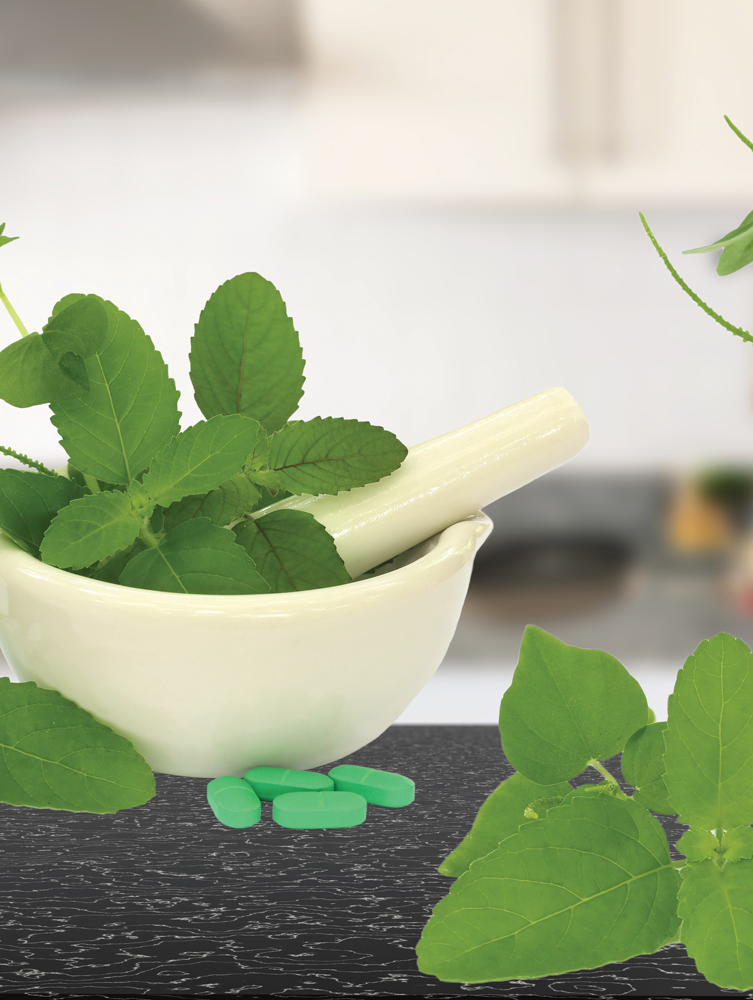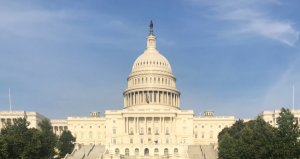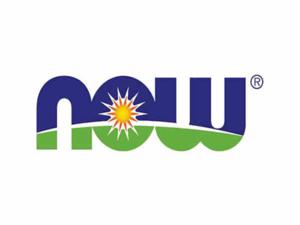The supplement industry focuses on its commitment to consumers.
There is rarely, if ever, a good thing that doesn’t take a hit. Such is the case with botanical supplements, used globally in some form for several thousand years to help bolster human wellness. From chewing leaves, to decoctions and teas, to solid-dose forms with precise doses shown by science to be safe and effective, herbal supplements remain a trustworthy, viable and affordable way for people to care for themselves.
Yet in 2015, the category took a right hook when New York Attorney General (NY AG) Eric Schneiderman and 13 other attorneys general delivered a missive to Congress, requesting that the body “weigh a more robust oversight role for the Food and Drug Administration when regulating botanical supplements.” [April 2, 2015.]
The letter moved on to state the 20-year-old modifier: “Under the Dietary Supplement Health and Education Act (DSHEA), herbal and other dietary supplements are subject to a much less rigorous oversight process than pharmaceutical products.”
Dietary supplements have never been meant to portray actions or deliver results as pharmaceutical medications, hence DSHEA’s clear description that herbal (and other) supplements are to be formulated and marketed solely to “support the structure and function” of various aspects of the human body.
That said, the motivation for this multi-signed letter stems from an examination by the NY Office of the AG that found that many of the “popular herbal supplements sold by four major retailers … were contaminated with allergens, plant species left off the label, or other potentially dangerous substances, or so ‘thoroughly’ processed that the genetic material of the original ‘natural’ plant source was unrecognizable or not present at all.”
The 14 AGs then called upon Congress to pursue a five-point plan of action to combat and hopefully eradicate further problems of this aforementioned characterized nature, so that consumers of all types may be assured that they are ingesting solely what is on the label, for safety.
However, Rick Sharpee, PhD, director of science & nutrition, NOW Foods in Illinois explained that recently, numerous scientific and public conferences demonstrated that the scientific bases for the NY AG actions against the sale of dietary supplements of selected herbal extracts by the use of DNA barcode testing is only 53-85 percent reliable under the best test conditions. “This is primarily because the DNA base sequences selected for the identification of many botanical species have not been accurately identified,” he stated.
In addition, Sharpee elaborated, “the use of DNA barcode technology is entirely inappropriate for botanical extracts since the DNA from the botanical is either denatured or destroyed in the extraction process leaving little or no DNA corresponding to the botanical species. As more of this information on the lack of utility for the use of DNA barcoding becomes public, the AGs risk being discredited by the scientific community as well as the public who may interpret their motives as purely political. Thus retailers may be best served by merely monitoring the media coverage of any subsequent AG actions if any occur.”
Despite that, mass media greedily absorbed this and then trotted out the hackneyed sentiments that once again, supplements are “unregulated,” a “waste of money,” and even “dangerous.” And while this song has been played before, it still delivers wave-like ripples that call for conversation and action, in order to address the crux of the issue, as well as how to self-police much more effectively.
“It is troubling to know that a number of brands may have been cutting corners and cheating consumers by failing to provide accurate descriptions of the composition of their products,” said Rafael Avila, director of research and development for Nature’s Plus in New York. “But such disregard for quality and accuracy is nothing new in the world of dietary supplements.”
Avila added that since the inception of Nature’s Plus’ venerable botanical supplement line, Herbal Actives, the company committed to following regulations to ensure consumer safety. It worked to acquire numerous certifications and accreditations, including from NSF, organic certifiers, state boards of pharmacy, and various international government licensing bodies.
Likewise, Wisconsin-based EuroPharma has been implementing a highly rigorous quality assurance program, according to Cheryl Myers, chief of scientific affairs and education, and as such, she reported the company was less affected by some of the negative fallout. “However, it is problematic that legal decisions may be made without full understanding of the many considerations one has when working with botanicals. I hope the organizations representing our industry—like the Council for Responsible Nutrition (CRN), the American Herbal Products Association (AHPA), the American Botanical Council (ABC), and others, can work with regulatory agencies to assure high levels of quality while using appropriate, scientifically validated methodologies.”
North Carolina-based Gaia Herbs, Inc. has had an on-site lab since 1994, pointed out Todd King, vice president of marketing, and today its scientists are moving forward with their DNA standardization models. Gaia is also vertically integrated “from seed to shelf,” which includes its 350-acre certified organic farm in North Carolina and its new organic farm in Costa Rica that grows turmeric (both are certified organic by Oregon Tilth). As such, he said, the company tests every batch of herbs used in its products to guarantee them free of pesticide residue, heavy metals and microbes.
“In 2010, we launched MeetYourHerbs, which is the industry’s first and only traceability program,” King described. “Customers—and attorneys general—can see the proof that what’s on the label is what’s in the bottle. We publish our test results for every batch and every product right on the website.”
Jennifer Pillari, president of Colorado-based OHCO/Oriental Herb Company, related that OHCO has become more vocal about the safety, purity and quality of the herbs in its formulas. In addition to testing that is done on the herbs pre-production, OHCO tests the finished product for pesticides, heavy metals and microbes. The botanical supplement maker provides that information to retailers and the public. In addition, she said, “Our other big concern is GMOs (genetically modified organisms); we don’t want them in our formulas so we continue to work with suppliers who can show us non-GMO certification of any GMO suspect ingredients.”
Beth Lambert, CEO of Herbalist & Alchemist, Inc. in New Jersey said that the company’s botanical supplement sales have grown steadily, and one strong reason she said is that “our customers rely more on referrals and results than the news. There is strong evidence that when consumers have trust in a brand, negative media does not erode that trust. We do think that the negative press has affected the industry overall; concern about quality is an issue among consumers.”
That concern may still exist, if not become a bit magnified in 2016 and beyond, but sources are confidant that overall, things are under control, at least from their end. Avila commented, “We can only hope that consumer interest is the motivation behind the scrutiny. If it turns out that such scrutiny is merely another assault on health freedom, and that the investigations are intended to find flaws that may not even exist, then everyone should be worried.”
Lambert elaborated,” Our industry’s quality companies want to be judged on their commitment to consumers. As long as the challenges are using valid scientific principles and correct facts, we as many other companies in this industry, want to provide honest and accurate answers. Overall and important to remember, said Myers, is that the dietary supplement industry has an exemplary record of safety over the past several years. For example, she cited that, while 106,000 people die every year from toxic reactions to prescribed drugs,1 there have been zero deaths annually due to any dietary supplement.2
King reported that, in an effort to increase transparency and traceability, Gaia Herbs re-launched its MeetYourHerbs program, which features many more quality tests results, allowing any interested party to “go straight to the source of your herbs and take a virtual walk on our farms.” It focuses on education about cultivation, harvesting, science, validation processes, herbs’ uses, histories and functions, and more.
Gaia’s MeetYourHerbs program is also easily used in the store environment, for when consumers have questions about safety and reliability, or are just curious about how something goes from a field into a bottle.
Additionally, “retailers should work with brands that are transparent about their quality practices,” Lambert advised. She encouraged retailers to review all manufacturers to ensure they follow and exemplify the “core of the industry: GMP (good manufacturing practice) compliance, marketing legally (no drug or disease claims), testing ingredients and finished products using good labs and correct methods, formulating products with therapeutic doses of quality ingredients. When consumers get the results they expect, loyalty is reinforced,” she said.
PIllari observed that there will likely always be “opposition from people who are uneducated about the scope of herbs and hitch themselves to one ingredient issue or one problem company and generalize that it applies to the whole industry.” She advised retailers to always vet their botanical vendors to ensure they are providing safe products. “A company that is confident about the safety and quality of their products has no problem producing verification of the safety measures that are in place,” she added.
Overcoming Obstacles
Looking into the near future, sources say that key challenges still revolve around ensuring full quality as well as using the ever-evolving technology to validate that quality. According to Avila, it is more expensive and difficult for manufacturers to “produce a high quality, effective supplement than to produce one that is based on hype and fluff. But we are not alone in this fight. Every year, new technologies help us to better verify the quality of our products.”
For example, he provided, most recently, lower cost PCR (polymerase chain reaction) analysis for GMO-free status has been allowing for confirmation with even greater certainty. Another recent technology has been the higher sensitivity ELISA (enzyme-linked immunosorbent assay), which helps ensure that gluten-free products contain absolutely no gluten. Nature’s Plus also uses ICP-MS, HPLC, near infrared spectrophotometry and other technologies for quality assurance.
In Sharpee’s view, the botanical supplement industry must focus on ingredient quality through supply chain management—a process crafted to ensure the identity, potency and purity of botanical supplements by requiring all suppliers of the bulk botanical materials to fully comply with existing cGMPs as required by the FDA (U.S. Food and Drug Administration). “Although at NOW, this process has been in practice for several years, it is being further strengthened through supplier audits to verify the integrity of the ingredient acquisition process by the supplier and testing to confirm each batch of ingredient raw material meets product specifications,” he explained.
One challenge, Myers emphasized, is the ability to see an increase in quality clinical health studies that use botanical interventions as well as more funding for such studies, which is necessary for further understanding, and confidence in efficacious and safe use for consumers.
Beyond quality assurance and increased clinical sophistication, Lambert sees overall environmental changes as providing challenges to an industry that relies on natural resources. She pointed to climate change and attendant losses of habitats and those effects on botanicals as increasing with time. “All in the industry—farmers, wild-crafters, manufacturers, retailers, practitioners and consumers—must play a part,” she implored. “First we must acknowledge and recognize the issue. Addressing it will involve a combination of improving cultivation and collection methods, as well as appropriate reformulation or substitutions to take pressure off wild harvests when necessary. Commitment to sustainability is crucial.”
Pillari agreed, noting that climate change is a significant issue especially for companies that rely on wild-crafted plants, as many of the habitats where medicinal plants are found are susceptible to the impact of unpredictable and increasingly unprecedented weather patterns. “I honestly have no idea how it should be addressed,” she related. “There is always a question about the importance of geography and using native soil to grow native plants. Are Chinese herbs grown in Oregon as effective as ones grown in Taiwan? Or in a greenhouse? Many people say no. This issue really taps into a larger issue that requires huge intervention. It will be interesting to see how it unfolds over the next few years. I will admit that it is a concern for me and the sourcing of the ingredients in our products.”
But yet this forecast is most certainly not one of gloom; it is rather a picture of rosy opportunity and positivity. In a very real sense, the AG letter to Congress highlights the fact that there are some unscrupulous things going on that need to be weeded out. And this opens doors for those with integrity—including retailers—to find fresh opportunities to showcase superior standards of safety and trust in using botanical supplements to support overall health and well being.
Sharpee pointed out that quite a few companies that produce leading botanical brands are already taking the right steps to provide continuous product improvement, and have strong quality control processes and rigorous testing in place. “So while as an industry we are travelling through a period of upheaval and attack, the end result for the consumer should be a stronger sense of trust. The strength of the industry should grow as more companies boost their quality. Those companies that can’t or don’t improve—along with the companies and products that are currently breaking the law by selling adulterated supplements—will ultimately be removed from the market.”
Lambert observed a positive trend: an increasing number of practitioners are dedicated to learning about how to incorporate botanicals in their scopes of practice. Herbalist & Alchemist founder, David Winston, recently led a seminar at the Association for Advancement of Restorative Medicine Conference. In attendance were a large number of MDs, NDs, nurse practitioners, DCs and pharmacists who wanted to gain a deeper understanding of which herb is most appropriate in cases of specific issues. “Appropriate use of herbs when combined with diet, exercise and lifestyle changes can improve health and the quality of life, and it’s a positive development to see the medical community incorporate herbs into their treatment options,” she commented.
No matter the forum, both King and Myers pointed to continued education as generating higher consumer trust, more sales, and ultimately also some smarter brand marketers that will not cut dangerous corners. Gaia, noted King, recently launched a lively educational blog that blends in seasonal tips for healthier living, consumer-friendly research news, farm and product updates and healthy recipes.
“The most important thing we can do to increase consumer trust is with education,” Myers underscored. “The more the consumer has access to scientifically validated information about botanical medicines, the more likely they will increase their use of them.” VR
References:
1 Lazarou J. JAMA. 1998;279:1200-5.
2 Mowry JB. Clin Toxicol 2014 Dec;52(10):1032-283.
For More Information:
EuroPharma USA, (866) 598-5487
Gaia Herbs, www.gaiaherbs.com
Herbalist & Alchemist, (908) 689-9020 x202
Nature’s Plus, (631) 293-0030
NOW Foods, (630) 545-9098
OHCO/Oriental Herb Company, (303) 674-2466












